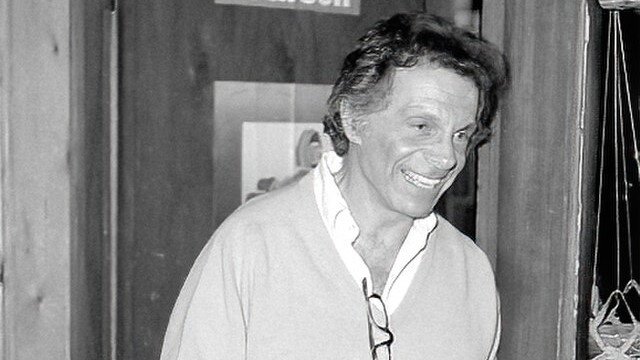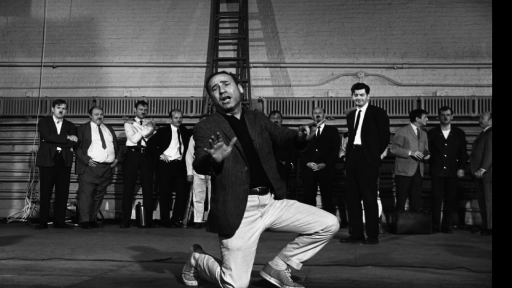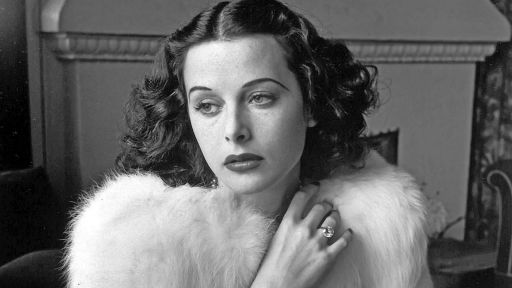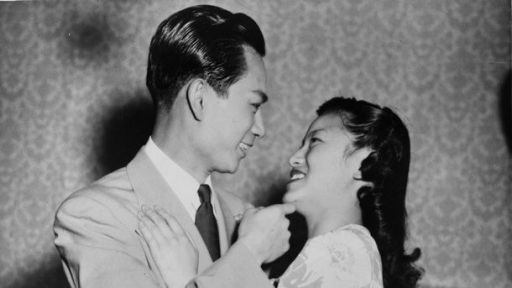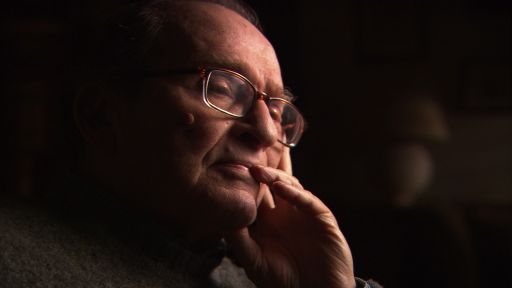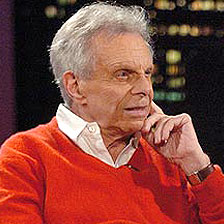 “Will Rogers…used to come out with a newspaper and pretend he was a yokel criticizing the intellectuals who ran the government. I come out with a newspaper and pretend I’m an intellectual making fun of the yokels running the government.”
“Will Rogers…used to come out with a newspaper and pretend he was a yokel criticizing the intellectuals who ran the government. I come out with a newspaper and pretend I’m an intellectual making fun of the yokels running the government.”
In his trademark V-neck sweater, with the day’s newspaper tucked under his arm, Mort Sahl has satirized — and entertained — presidents from Eisenhower to Clinton.
He revolutionized the world of stand-up comedy with a fresh combination of political awareness, fearless criticism of the government, and a willingness to draw on personal experience. His refusal to play favorites with the political community made him the center of intense controversy, and his involvement with John F. Kennedy nearly cost him his career. But through it all, Mort Sahl has remained an unflinching critic of American politics, and he has never backed away from his beliefs.
Born in Montreal, Canada in 1927 Mort Sahl attended the University of Southern California.
It was there that he began to work as a stand-up comic on stages throughout Los Angeles. In late 1953, at the urging of a friend, Sahl went to San Francisco to try his hand at the big time. There, Enrico Banducci, owner of THE HUNGRY I, a popular nightclub, hired him to fill in for a singer. To conquer his initial nervousness, he adapted a machine-gun, non-stop delivery that earned him the nickname “Rebel Without a Pause.” While most comedians of the 1940s and 1950s were delivering stock jokes about wives and mothers-in-law, he turned to the newspapers for material. “The audience didn’t know what to make of me,” Sahl said, “Here was this strange face, speaking a strange language, in a strange dialect, with strange ideas.”
The political climate of the 1950s was ripe for comic satire.
President Eisenhower, the McCarthy hearings, the Cold War, and the beginning of the atomic age all presented themselves as targets for Sahl’s bipartisan barbs. His unbridled critiques of the House Un-American Activities Committee brought strong criticism and even violent threats. Through it all he continued to work, putting out several comedy albums and performing frequently on THE TONIGHT SHOW and THE STEVE ALLEN SHOW. He also took roles in a number of movies. Pioneering stand-up comedy in a circuit of night clubs that presented primarily jazz music, he adopted much of the jazz aesthetic. Sahl cites jazz pianist and bandleader Stan Kenton as his most important performing influence: “Stan, of course, was a great artist, but he was a voice of defiance, and he always did it on his own terms.”
In August of 1960, TIME magazine pictured Sahl on its cover and called him “the patriarch of a new school of comedians,” including in that group such stand-up legends as Lenny Bruce and Jonathan Winters. The year before, Sahl was hired to contribute jokes to John F. Kennedy’s presidential campaign speeches, but once Kennedy was in office, Sahl returned to his policy of making jokes about the incumbent. Kennedy’s father Joseph Kennedy put pressure on Sahl to cease his criticism, even going so far as to threaten to silence Sahl.
Following Kennedy’s assassination in 1963, Sahl volunteered to assist in the investigation being conducted by New Orleans D.A. Jim Garrison, which eventually concluded that the assassination was sanctioned by the CIA. During the investigation, Sahl began to openly criticize the findings of the Warren Report, which said that Oswald had acted alone. Once again, Sahl met with hostility from the press. Many questioned the professional wisdom of Sahl’s devotion to the assassination issue—some even suggested that he had lost his sense of humor.
Though the early 1960s would be his time of greatest fame, he enjoyed renewed popularity during the Watergate scandal, and since then has made frequent appearances both in person and on television.
In the 1980s he delighted audiences with his parodies of Reagan and Bush on Broadway. Today Mort Sahl remains an inspiration to humorists and social critics everywhere. Of his deep integrity, journalist John Hart said, “Mort Sahl doesn’t tell jokes so much as he tells the truth.”

